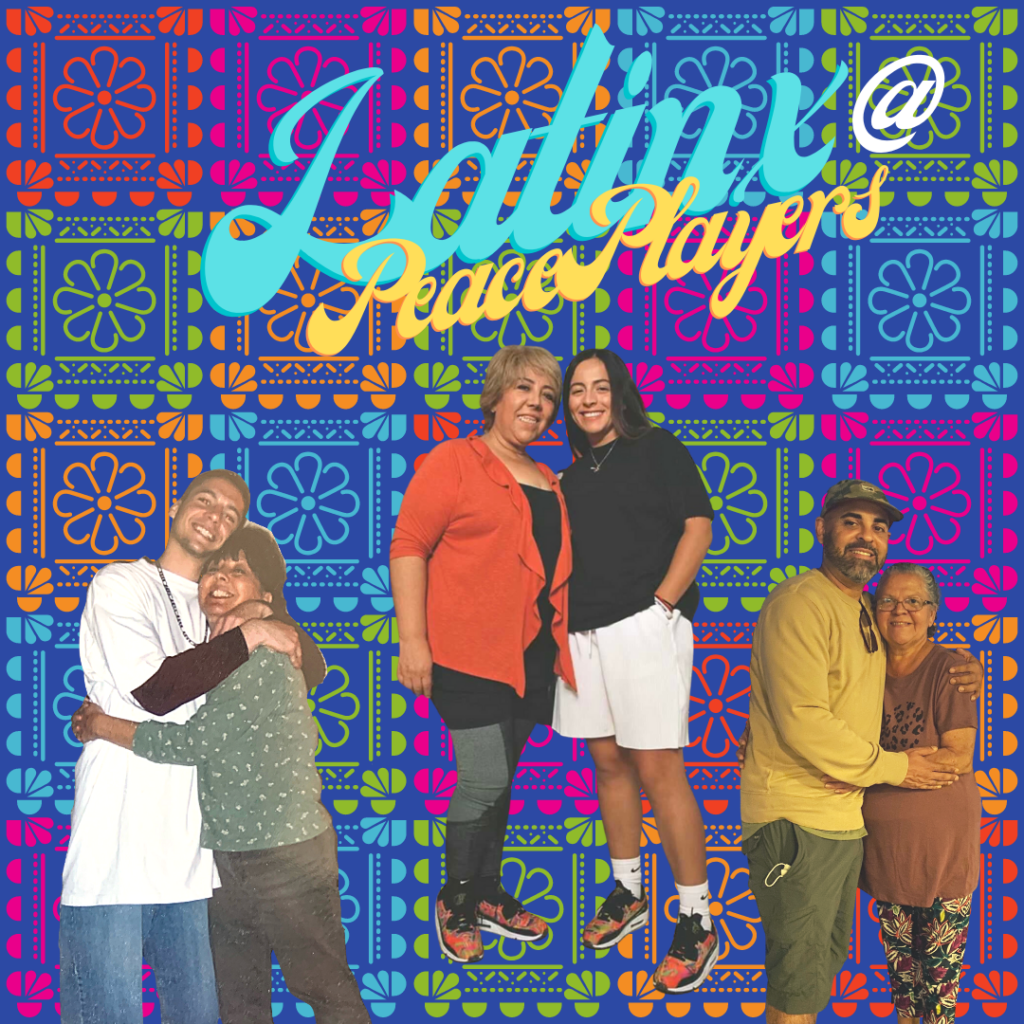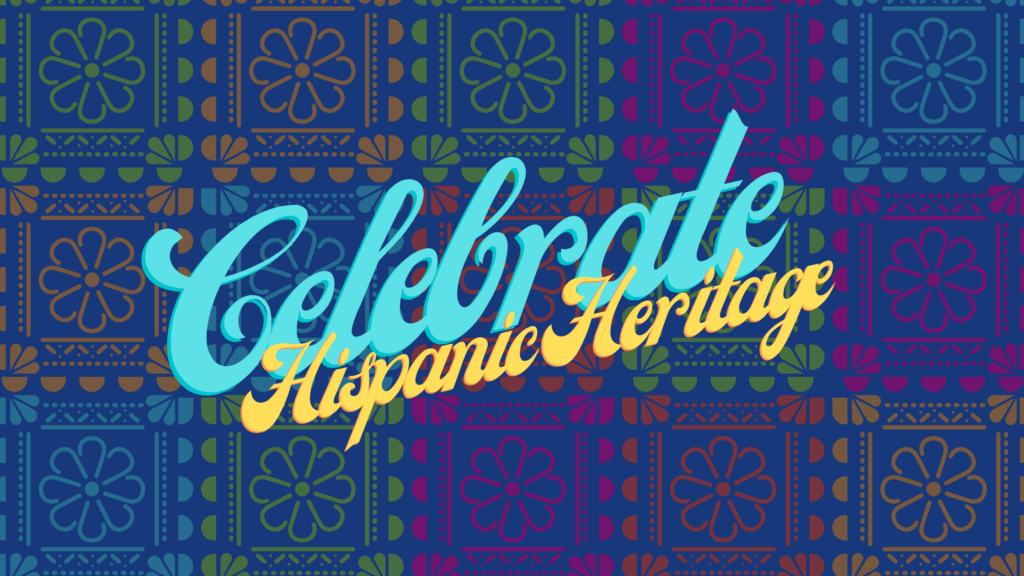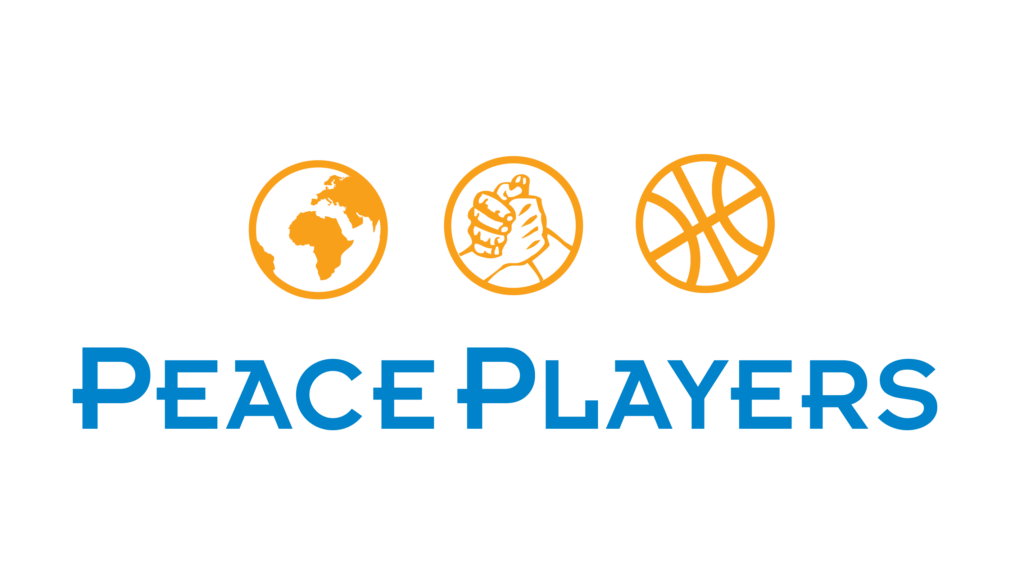Celebrating Hispanic Heritage Month at PeacePlayers
October 12, 2022
SHARE
Welcome to “Latinx at PeacePlayers” where we celebrate the end of this year’s Hispanic Heritage Month and spotlight the PeacePlayers ‘familia’ who incite change in our communities daily. On our team, members of the Latinx community shape our everyday work through their community centered perspectives rooted in diverse experiences, and so much more. In an effort to uplift and empower the stories closest to home, we got the chance to do a Q&A with the folks on our team who represent the rich cultures of the Latinx and Hispanic diasporas. We asked our U.S. teammates – Wayne, Nat, and Ben – to share their perspectives and stories around culture, community, and what makes them who they are. Take a peek!
Q: Let’s start with the basics. How would you identify yourself? Hispanic, Latino or Chicano? Why? Can you explain the difference between Hispanic and Latina/o/e/x?
A: Neither and both - ethnically, Puerto Ricans can be a mix of Spanish, African, and Taino. Puerto Ricans are wonderfully mestizo.

A: Both Latina and hispanic! Hispanic refers to people who speak Spanish or are descended from Spanish-speaking populations, while Latino/e/x refers to people who are from or descended from people from Latin America. I'm Colombian and Mexican...I fall into both categories.
A: My mother is of Mexican descent and my father is of European Jewish descent, so I am mixed. I might say Latino and White, I don't know. But I can also describe myself on my mothers side of the family as "Mexican American," and I also use other terms like Chicano, Latino/a/x/e, Hispanic, and more. I'm not too hung up on what words to use, but different terms may be more or less politically charged, more or less inclusive, more or less Eurocentric, and may have implications for gender (such as in the case of latinx/o/a/e). Raza is another one that's fairly inclusive and gender neutral but I don't think it's too popular anymore.
Q: What does it mean to you to be Latinx, Hispanic or Chicano?
A: I am of Mexican descent on my mothers side, and my family on that side has been in Southern California and the Los Angeles area for multiple generations, though some have moved to other states throughout the west/southwest, including myself for some time then I came back. My family background connects me even more to the place I call home and the unique cultures that have created Southern California. Thats why Tupac Shakur rapped "It wouldn't be LA without Mexicans."
A: I’m prideful about my culture! I'm proud to come from a community of resilient, determined and loving people. To be latina is to embody these traits!
Q: What country are your relatives from/from where is your heritage? Why did your relatives immigrate to the United States?
A: My family is from Puerto Rico, and I am not sure of all the reasons why we moved to the US, but I do remember it was winter and cold in Chicago. I was five years old and baffled about the weather, LOL
A: Both parents were born in their respective countries. My dad migrated as a teen [from Colombia] and my mother came to the states in her mid 20s [from Mexico]! Can't speak so much for my dad (he passed when I was in kinder) but my mom came to the US seeking more opportunities. She had a couple brothers that came to the US before her and they encouraged her to make the move. Funny enough, she wasn't so excited to do so but the move changed her life! She met the love of her life and created a beautiful fam.
A: The most recent story of migration in my family comes from my grandmother's side, whose parents (my great grandparents) moved from Jerez, Zacatecas, Mexico to the United States in the 1920's, eventually settling in Watts, CA. My grandma was born a few years later. The story is that my grandfather, from whom I get my middle name, ran away to the United States with my grandmother and their baby (my grandma's oldest brother). Both of my grandparents on my mom's side are of Mexican descent and were raised in Watts, CA, so I grew up hearing a lot of stories about the Watts community back in the 1930's and 40's. I feel extremely lucky to now be working with youth in Watts. I wish my grandparents were still alive so we could talk about it. My grandma was my last surviving grandparent, and she died about a year ago at the age of 92.
Q: What role does food play in your culture? What dish holds the most significance to you?
A: I love the big huge burritos that you can get at taquerias that come with everything inside it, rice, beans, whatever meat, pico de gallo, and more. The best is when it's smothered in chile. Or you can just eat it handheld with salsa and limon. Here in LA they are awesome. I also spent some years living in Colorado, and they got great burritos out there too, smothered in a special green chile sauce. I was surprised when I first visited Mexico and found out that burritos are not really so common in alot of places over there! It's really more of Southwest US thing. It's my favorite take out food, and a good representation of the unique cultures of the US Southwest and US-Mexico border region. As far as dishes that I cook, I have a recipe for enchilada casserole that my mom used to make for us when I was a kid. This dish uses the ingredients for the classic Mexican dish enchiladas (tortillas, cheese, enchilada sauce, and whatever veggies and meat you want to add) but instead of rolling the tortillas, you stack them to create a casserole, and then let it sit in the oven. I usually use ground turkey, olives, and chopped up bell peppers as my toppings, and of course cheese and enchilada sauce, all between and on top of the layers of tortillas. Chosen hot sauce on top optional! Some might say that this is not real Mexican food, and they are probably right! But by taking a traditional Mexican dish and turning it into a casserole-like meal that is so popular in the United States, I think this dish combines Mexican and US American elements in a way that I feel represents my Mexican American background. Plus it's convenient, yummy, and usually leaves us with leftovers that we can eat later!
A: Food holds so much value to us. We come together around food and music; the sound and the flavors all go together. The dish that has the most significance is Mofongo with shrimp.
A: Food is at the center of my culture. Any family gatherings we have, all of my cousins and I know to expect delicious food. Examples: Enchiladas, Tortas Ahogadas, Pozole, Taquitos Dorados, Birria... My mom is an amazing cook so all of the plates I listed are my favorites. She makes these plates on my birthday.
Q: What do you want people to know about your culture?
A: We're extremely family-oriented and hard-working!!
A: Me personally, my culture is complex! I have a mixed background, being of both Mexican descent and European Jewish descent. Growing up, I maybe didn't have as strong of an ethnic identity as some, but I think I was very influenced culturally by my environment and the activities I was involved in, like skateboarding when I was younger, and basketball and being into hip hop music in my middle/high school years. I think that's probably true for a lot of kids though and it shapes you into your future. Southern California kinda just has Mexican or Latinx cultural character in a lot of places, including where I'm from, and there are historical reasons for this. Many don't even know that the US Southwest was part of Mexico before the Mexican American war. People in my hometown [of Chino] don't even know that there was a battle in this war in my hometown during that war! Spanish has been spoken on this land longer than English has (but of course nothing compared to as long as the various native languages of this continent). Mexicans were the original cowboys. Mexican culture is foundational to the USA and what they call "the West."
A: We are a mixed culture of Taino Indians, Spaniards, and Africans. The culture is full of rhythms that move the soul all on a small Island. It takes around 5 1/2 to seven hours to drive around Puerto Rico. The island is 100 by 39 miles, with a perimeter of 278 miles. Also, there are residents on three of its islands: Puerto Rico, Culebra, and Vieques. You can go to beaches, the rainforest, caves, forests, lakes, mountains, and valleys.
Q: How has your culture molded you?
A: The way I see life, people, nature, food, music, dance, laughter, and pure joy is because of my culture.
A: I feel as if my culture (my mom especially) has shaped me into the loving/ambitious individual that I am today. I've mirrored her behavior growing up and she's always spread love, kindness, support…
A: My culture has molded me to be who I am today!
Q: How can others celebrate Latinx/Hispanic Heritage Month?
A: Learn about Latinx history, support Latinx businesses, give to Latinx nonprofits that uplift people (if you have extra money), and more. But also do it all year, not just for a month!
A: By acknowledging the contributions and influence of Hispanics/Latinx to the history and culture of the U.S.!
A: Go to a local Latino/Hispanic store or restaurant and invest in that business. Read stories of the local groups living next to you to understand their journey better.
Q: Are there experiences, categorizations, or shared trauma where other POC and Hispanic/Latinx folks can find solidarity?
A: The experiences of Mexican Americans have a lot in common with other POC in the United States, as well as people around the world, who have faced discrimination and oppression but have also combated it and/or succeeded in their personal goals in spite of it. And it is possible to do both! But it's so hard. We all need to know our histories because they have led to the not so different challenges we face in the present times. We need education for liberation, which helps us understand our real history, learn from it, apply it to modern times, and figure out how to connect with others to change the future. And when I say connect with others, I mean in our own communities but also well beyond. This is necessary and possible because histories and experiences of dealing with and/or struggling against colonization, oppression, and exploitation are worldwide, and our world is more connected than ever.






